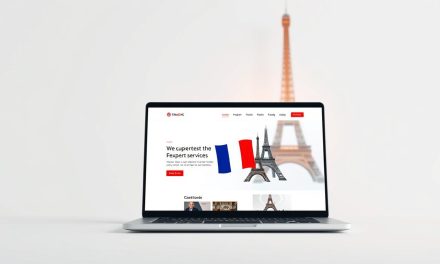Did you know the portage salarial sector in France has grown by roughly 20% each year? This growth shows a major shift in how professionals work. More people are choosing this model to gain freedom while keeping security.
This unique framework is a hybrid professional status. It blends the independence of running your own business with the safety net of a salaried position. A tripartite relationship is at its core, involving you (the consultant), your client, and the société portage.
The portage company handles complex administrative tasks. This includes payroll, social contributions, and legal compliance. You are free to focus entirely on your projects and growing your activity.
Mastering the art of négociation for your contrat is the key to unlocking the full potential of this arrangement. A well-structured agreement clarifies your rights, income, and responsibilities. It turns a simple document into a powerful tool for your career growth.
This guide will show you how to approach this process with confidence. We will help you secure the best possible terms and enjoy all the avantages.
Table of Contents
Key Takeaways
- Portage salarial offers a blend of entrepreneurial freedom and employee-like security.
- A three-party agreement connects the consultant, the client, and the portage company.
- The administrative and legal burdens are managed by the portage company.
- This professional model is experiencing significant annual growth in France.
- Effective contract negotiation is crucial for maximizing benefits and protecting your interests.
- A clear agreement establishes transparent terms for fees, remuneration, and responsibilities.
Understanding the Portage Salarial Framework
At the heart of modern flexible work arrangements in France lies a carefully regulated framework designed to protect professionals. This system provides a solid foundation for your independent career while ensuring comprehensive security.
Defining Portage Salarial and Its Legal Context
The portage salarial model operates under specific French legislation, including law n°2008-596 and the Code du travail. These regulations create a legally recognized cadre that safeguards all parties involved.
Article L1251-64 guarantees you the same rights as traditional employees. This includes full protection sociale, paid leave, and training opportunities even during mission gaps.
Exploring the Tripartite Relationship
This unique relation involves three key players: you as the professional, the société portage, and the entreprise cliente. Each has distinct but interconnected roles that create a balanced ecosystem.
The portage company handles administrative tasks like URSSAF declarations and payroll. You maintain autonomy over your travail schedule and client relationships. This structure allows you to focus entirely on delivering quality services.
Written contracts are mandatory and typically specify revenue distribution. Most arrangements return about 78% of gross revenue to the salarié, with 22% covering management fees. This transparent cadre ensures everyone understands their responsibilities from the start.
Preparation and Self-Assessment for Effective Negotiations

To confidently discuss terms, you must first undertake a crucial preparatory phase of self-assessment and market analysis. This groundwork transforms you from a hopeful applicant into a well-informed professional ready to articulate your valeur.
Evaluating Your Expertise and Experience
Begin with a deep inventory of your compétences. List your technical abilities and soft skills. This honest appraisal helps you recognize your unique expertise.
Identify areas where you excel and note any gaps. For exemple, in IT, skills in artificial intelligence are highly sought after. Understanding your full profile allows you to target missions that match your besoins and strengths.
Conducting Market Research and Benchmarking Prices
Next, analyze the marché. Research what other professionals charge for similar activité. Use specialized platforms and professional networks to gather data on standard tarifs.
Several factors influence prix. Geographic location, client size, and mission complexity all play a role. A consultant in Paris often commands a higher daily rate than one in other regions.
Your financial planning is key. Based on a typical year of 100-110 billable days, you can calculate the minimum daily rate needed to meet your income goals. Remember, your net remuneration is roughly half of the invoiced amount.
| Annual Income Goal (Net) | Estimated Billable Days | Required Daily Rate (Gross) |
|---|---|---|
| €50,000 | 105 | €952 |
| €70,000 | 110 | €1,273 |
| €90,000 | 100 | €1,800 |
This table provides a clear exemple of how to align your financial besoins with market realities. It empowers you to set informed prix for your activité.
Building a Solid Contract: Key Elements and Clauses
A well-structured agreement serves as your primary shield in professional engagements. This document defines the operational cadre that protects all parties involved. Proper contract gestion ensures smooth collaboration throughout your mission.
Identifying Critical Contract Clauses
Your contrat must contain specific elements to be effective. The remuneration distribution percentage is fundamental. Most arrangements follow a 78/22 split between consultant and société portage.
Payment conditions require careful attention. Establish clear timelines for client payments and salary disbursement. This prevents cash flow issues during your collaboration.
Insurance coverage should be explicitly stated. Professional liability protection is essential. The contract doit être transparent about all included services and fees.
Setting Clear Payment and Termination Terms
Define payment tarif structures with precision. Specify whether rates are daily, monthly, or project-based. This clarity protects your revenus throughout the engagement.
Termination conditions provide security for both sides. Standard notice periods typically range from 15 to 30 days. These terms allow adequate temps for transition planning.
Effective contract gestion includes scope definition. Clearly outline what work falls within the original agreement. This prevents misunderstandings about additional responsibilities.
Mastering comment négocier ses contrats en portage salarial

The art of reaching mutually beneficial terms requires a strategic mindset and careful preparation. This négociation process should feel like a collaborative discussion rather than a confrontation. Your stratégie should focus on creating value for both parties.
Effective Negotiation Techniques
Begin with active listening to fully understand client needs. This approche builds trust and reveals important negotiation points. Strategic reformulation helps confirm understanding while showing empathy.
Present multiple solution options that protect your interests. This empowers clients while maintaining your boundaries. Prepare counterarguments for potential objections in advance.
Remember the give-and-take principle. Never offer concessions without receiving value in return. This maintains your professional standing throughout the négociation.
Establishing Clear Objectives and Limits
Define your non-negotiable objectifs before discussions begin. These include minimum rates, working hours, and essential contract protections. Your financial boundaries should support your lifestyle needs.
Identify elements with limited value to you but high value to clients. Use these strategically in trade-offs. This approach helps you achieve favorable terms for your missions.
Set realistic objectifs based on market research and personal requirements. Your limits should be firm but reasonable. This balance ensures sustainable professional relationships.
| Client Request | Consultant Concession | Expected Return Benefit |
|---|---|---|
| Lower daily tarif | Reduced rate | Longer contract duration or future project commitment |
| Tighter deadlines | Accelerated delivery | Premium payment terms or bonus structure |
| Additional services | Expanded scope | Higher overall project value or referral opportunities |
Leveraging Your Value and Expertise in Negotiations
The ability to clearly showcase your distinctive expertise separates average consultants from highly sought-after professionals. Your unique valeur becomes your most powerful negotiating tool when properly demonstrated.
Showcasing Your Unique Skill Set
Build a compelling portfolio that highlights your specific compétences. Include detailed case studies showing measurable résultats from previous missions. Client testimonials add credibility to your expertise claims.
For exemple, a project management consultant might showcase a process optimization that reduced costs by 25%. This tangible evidence strengthens your position when discussing tarifs.
Justifying Your Rates with Proven Results
Translate your services into clear business benefits. Explain how your work delivers significant valeur ajoutée that justifies your rates. Use concrete data from past successes.
An HR consultant could demonstrate how their expertise reduced employee turnover by 30%. This creates a strong argument for your tarifs based on real valeur delivered.
| Client Type | Key Value Points | Demonstration Method |
|---|---|---|
| Startups | Innovation capacity, rapid adaptation | Case studies showing agile project success |
| Large Enterprises | Complex project experience, compliance knowledge | Portfolio with scalable solution examples |
| Mid-size Companies | Cost efficiency, measurable ROI | Data-driven results from similar engagements |
This approach transforms rate discussions into value conversations. Your proven compétences become the foundation for successful negotiations that recognize your true valeur ajoutée.
Managing Administrative and Financial Considerations
Maintaining clear financial records forms the foundation of a successful professional partnership. Effective gestion ensures your chiffre d’affaires is accurately tracked and your interests are protected. This operational symbiosis allows you to focus on your core mission.
Tracking Invoices and Financial Performance
Your société portage handles complex administrative tasks. However, personal oversight of your financial gestion remains crucial. Detailed monthly reports should document hours worked, deliverables, and expenses.
Studies show 92% of disputes stem from verbal versus written agreement gaps. Meticulous record-keeping prevents misunderstandings about tarifs and payment conditions. This protects your chiffre d’affaires and saves valuable temps.
Utilizing Digital Tools for Transparent Reporting
Modern digital outils streamline administrative burdens. They integrate time tracking, invoice generation, and reporting into one platform. Your société portage often provides a dedicated space for this data.
These outils facilitate transparent reporting for all stakeholders. They help the salarié verify accuracy and meet legal obligations efficiently. Choosing the right software is a key part of financial gestion.
| Tool Name | Primary Function | Best For |
|---|---|---|
| Cegid | French social compliance & payroll | Complex legal requirements |
| Silae | Payroll and HR management | Integrated HR solutions |
| QuickBooks | Cloud accounting & invoicing | Real-time financial dashboards |
This comparison helps you select outils that match your specific tarifs and reporting needs. Proper tool selection optimizes your temps and financial control.
Strategizing Communication and Client Relations
The quality of your client interactions directly impacts your professional success and contract stability. Effective communication serves as the foundation for building lasting partnerships with your entreprise cliente. This strategic approach ensures all parties remain aligned throughout your mission.
Building Trust with Clients Through Transparency
Transparency creates the bedrock of trust in professional relations. Proactively share project updates and challenges with your clients. This honest manière of working demonstrates reliability and builds confidence.
Listen actively to understand your client‘s core besoins. Regular reformulation of their requirements shows engagement. Always present multiple solution options that maintain their choice control.
Maintaining Productive Interaction and Follow-Ups
Establish clear communication protocols from the beginning. For clients requiring frequent updates, define reporting schedules in your contract. This prevents excessive time drain on actual work.
Schedule quarterly reviews with your société to adjust practical terms. Regular status meetings with each client maintain alignment. Documented communication trails prevent misunderstandings and disputes.
This structured approach to client management creates harmonious tripartite relationships. It reduces risks while reinforcing mutual trust for long-term success.
Handling Challenges and Complex Negotiations
Even the most prepared consultants encounter challenging scenarios during contract discussions. These moments test your professionalism and strategic thinking. A thoughtful approche turns potential conflicts into opportunities for building stronger partnerships.
Understanding different client personalities helps you navigate complex cases effectively. Each type requires a specific communication stratégie.
Dealing with Difficult Clients and Unexpected Demands
Some clients focus exclusively on prix reduction. For these bargainers, clearly articulate your value proposition. Explain how your expertise addresses their core besoins.
One experienced consultant shares her method: « My profitability limit is my compass. When a client wants cheaper, I wish them good continuation. Initially I accepted too easily from fear of losing business. Now I take the risk of saying no while explaining why. One in two clients calls back weeks later to conclude the deal! »
Rigid clients who resist advice benefit from active listening. Reformulate their requirements to ensure mutual understanding. Provide written recommendations for documentation.
For micromanagers, establish clear conditions upfront. Define reporting frequency and approval points in your service contract. This prevents excessive time consumption during your mission.
Overcoming Common Negotiation Roadblocks
Unexpected demands require diplomatic handling. Reference specific contract provisions that define mission boundaries. Propose formal amendments with appropriate compensation for expanded requirements.
When facing budget constraints, offer phased implementation options. This breaks impasses while protecting your interests. Creative solutions often transform difficult négociation into successful agreements.
Your professional boundaries ensure sustainable relationships. Knowing when to decline unreasonable terms protects your business long-term. This confidence comes from understanding your true value as a consultant.
Conclusion
Embracing the portage salarial model represents a strategic career choice that balances entrepreneurial freedom with essential security. This hybrid framework continues to grow at approximately 20% annually, reflecting its appeal to professionals seeking both autonomy and comprehensive protection sociale.
The avantages of this approach extend beyond immediate financial benefits. A well-structured agreement with your chosen société portage creates a foundation for sustainable growth. Your activité gains stability while maintaining flexibility for diverse missions.
Success in this model depends on a strategic approche to partnership selection and contract design. Choosing a responsive société that aligns with your professional objectifs ensures optimal support for your long terme career development.
By applying the principles outlined in this guide, you position yourself to maximize the unique benefits that portage salarial offre. This professional path combines the best of independent work with the security needed for lasting success.
FAQ
What is the primary advantage of using a portage salarial structure for my consulting business?
The main benefit is the unique combination of entrepreneurial freedom and employee-like security. You operate as an independent consultant while gaining access to comprehensive social protection, simplified administrative management, and a stable professional framework. This allows you to focus entirely on delivering high-value services to your clients.
How should I determine my rates when negotiating a contract in portage salarial?
Setting your rates requires a careful balance. Begin by evaluating your specific expertise, experience, and the tangible results you deliver. Then, conduct thorough market research to understand standard pricing for similar services. Your final rate should clearly reflect your unique value proposition and the specific needs of the client’s project.
What are the most critical clauses to include in a portage salarial contract?
Essential clauses for a solid agreement include a precise description of the mission’s scope and objectives, clear payment terms including rates and invoicing schedules, well-defined conditions for contract termination, and confidentiality agreements. These elements protect all parties and ensure a clear understanding of the working relationship.
How can I effectively justify my proposed rate to a potential client?
Justify your rate by clearly linking it to the client’s business objectives. Showcase your proven track record with concrete examples of past successes and the return on investment you’ve generated. Frame your expertise as a solution to their specific challenges, demonstrating how your work will add significant value to their enterprise.
What tools can help me manage the financial aspects of my activity under portage salarial?
Your portage salarial company typically provides a dedicated online portal for transparent financial tracking. This digital tool allows you to monitor your invoices, track your turnover, and access real-time reports on your financial performance, simplifying your administrative tasks and providing clear visibility.
How do I handle a client who is challenging the terms of a contract?
Approach such challenges with a focus on transparent communication and collaboration. Listen actively to their concerns, reaffirm the mutual benefits outlined in the agreement, and be prepared to discuss adjustments that do not compromise your core objectives or financial stability. Maintaining a professional and solution-oriented demeanor is key to preserving a positive long-term relationship.





